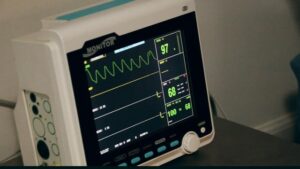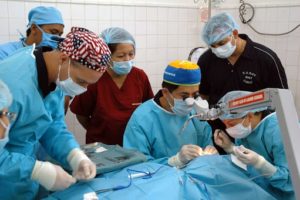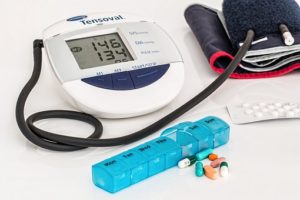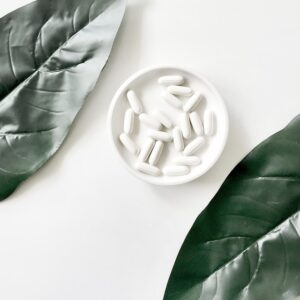The strength of obtaining anything at any time anywhere is what mobile technology furnishes to structure our health and future goals. Whether it is about to maintain a tab on the diagnosis of any physical ailments and sleeping patterns, the healthcare apps now have become a norm to offer greater health facilities and care right at the users’ fingertips. Recently the world famous Astro Strategist cum Business Astrologer Hirav Shah spoke at length about how the Mobile Applications have taken the Health industry by storm.
Hirav Shah, who is a leading legend in many fields of business including the Real Estate sector, Gold and Diamond industry, Healthcare, Restaurant Business, Corporates, Politics, Entertainment Industry, Sports, and many more, says, “Mobile App Development has taken over and completely re-written the healthcare industry. As technology evolves, it simultaneously opens up the possibility of being used in multiple ways. Similar has been the journey of healthcare mobile app development that has originated from the latest trends in technology and has made its way to being an industry in itself.”
Hirav Shah informs that considering the escalation in the mobile health apps, the mobile application development for healthcare revenue will take a sheer scale-up from $25.39 billion in 2017 to $58.8 billion in 2020.
This appears striking as the market size upgraded to four-time its size between 2012 and 2017. The healthcare segment that is an unavoidable component of the global economy is poised for unprecedented increase owing to the propagation of the enormous increment of Internet users and smart devices across the world.
Table of Contents
Mobile app development for the healthcare industry
The technology innovations indubitably are setting a halt to the endless lines in the hospital hall, the patients’ desperation to get inside the doctors’ chambers, and obstacles of assembling diagnostic tests that require an appropriate tracking of past health conditions. Mobile software application development in healthcare dedicated to diverse categories consisting of emergency care, general hospital appointment, fitness and healthy lifestyles, diagnostic and clinical assistants, and medication monitoring are disrupting the way healthcare is offered and assisting physicians and clinicians to make proactive decisions.
Future of Healthcare Industry Going To Rely Heavily on Mobile Applications
Here are some top advantages of utilizing mobile apps for the healthcare industry.
1. Minimized risks of diagnostic errors
A blunder in the medical diagnosis of a person can result in severe damage to the health condition of the patient. Healthcare app development for mobile possessed with intelligent diagnostic capabilities can minimize furnish with drug predictions and minimize the error rate. The feature is not restricted to proper diagnosis; the organizations formulating mobile apps for healthcare integrate additional features that also cause physicians to utilize mobile applications with cloud capabilities to stockpile patient records. Thus, errors coming from poor deduction from patient history or missing/mixed records can be reduced to a great extent.
2. Ensure instant access to care
Nowadays, obtaining access to said care on demand is exactly what a patient demands to conquer the health problems in some non-emergency medical circumstances remotely. This can preserve ample costs as patients can come across and book appointments with doctors in just some taps and acquire access information in a moment. In some instances, users can establish a home-visit and interact with professionals via video and audio chat. Various mobile app development services for healthcare are obtainable in the market that eases users to book appointments as well as ask questions regarding health problems round the clock.
3. Smoothening the clinical processes
It has been reported that by 2021, the IoT healthcare market is about to touch $136.8 billion. It is quite evident that clinicians or medical practitioners are expanding heavily in the advanced healthcare app ideas to elicit a sea change in the industry. There is no second consideration that IoT technology has cut down the task of healthcare experts by confirming to attain access to all data and information on their smart devices that are linked with the patients’ body to track crucial parameters. Besides, the IoT fusion with healthcare has provided a way to greater tackle the resources. The medical staff can maintain a tab on their huge stocks without much of a stretch and manage it systematically.
4. Assist patients to take ownership of their health
The improvement wave of fitness trackers and health wearable have assured self-tracking capabilities that can grip to record their health conditions on a consistent basis. It is providing them with ownership to track their health to remain active and aiding them to gratify better outcomes. With these constructive gizmos, users can become more dedicated to whatever activity or exercise they are on by creating conscious decisions that in turn, support them in avoiding any health issues or diseases. Metrics that users can monitor through such wearables are exercise routines, calorie consumption, diet regime, diabetes, heartbeat, and many more.
5. Cater to patient customization
Each patient calls for an unmatched list of past health records and that is why he needs particular attention and obviously a diverse treatment. To tailor treatment for every patient would be tiresome, especially in the scenarios when there is a horde of patients to manage. With custom business mobile application development, physicians can quickly explore a patients’ medical records, offer customized treatment, and pinpoint solutions for every patient.
Hirav Shah concludes by saying, “Not to state that the healthcare industry is going under massive transformation by gripping the strength of the latest trends of healthcare mobile apps and mobile technology. Therefore, it can be safely said that the revolution that the healthcare industry is undergoing and has worked in the favor of all the parties involved – Medical Professionals, Patients, Hospital Management, and the Mobile App Developers.”
























